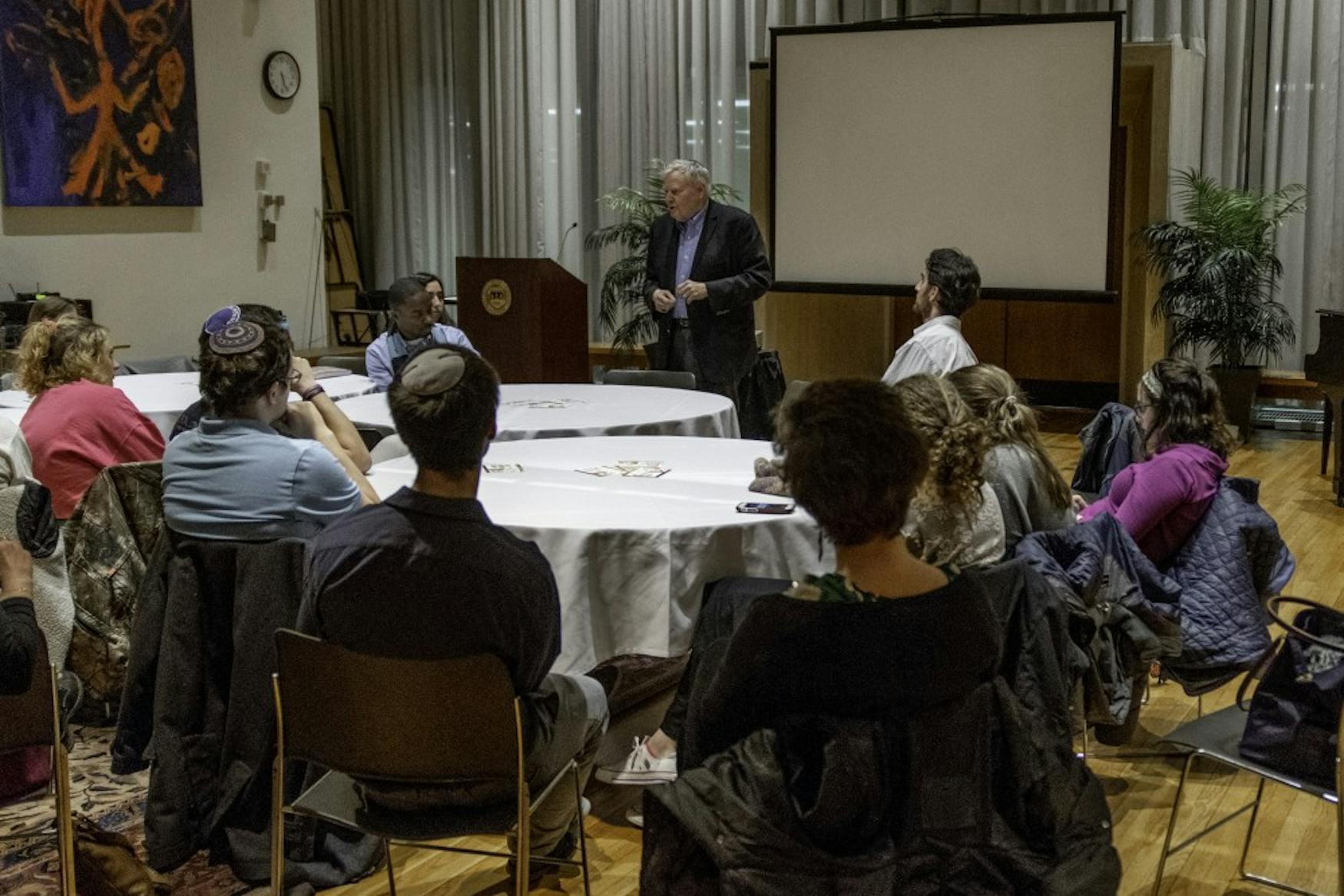Professor shares development of personal faith
In an effort to ease tensions before finals week, the Department of Religious and Spiritual Life hosted its final multifaith dinner of 2018, inviting Prof. Barry Shrage (HRNS) to speak to members of the Brandeis community about his religious journey and spiritual way of life. Shrage is a professor of the Hornstein Jewish Professional Leadership Program, a program dedicated to preparing future generations of Jewish leaders in professional organizations, according to the organization’s online website.
The dinner discussion began with Shrage discussing his emergence into his spiritual journey. This was followed by a question-and-answer session from the audience, through which the members were able to understand more about Shrage’s thoughts regarding maintaining pride in one’s religion and keeping faith.
Shrage asked audience members about their religious affiliation, focusing particularly on agnosticism. He noted that in a general survey of religious life “40% of people said that they are not sure [if they believe in God].” He believes that questions regarding “what God do you believe in, and what is the nature of that God” are “malleable concepts.”
He connected this dissonance in beliefs to the ideas that Rabbi Joseph B. Soloveitchik explains in his book “Lonely Man of Faith,” where Soloveitchik explains that “the Bible offers two accounts for the origin of man.” He summarized these within the conjecture of two Adams, each one representing different ways of life in Genesis 1 and Genesis 2, respectively. One Adam is set by God to become the “creative humankind,” and the second is meant to be “a spiritual seeker” and to learn his own destiny. Shrage used this to acknowledge the idea that God may not be a single entity, which he connected to the uncertainty of agnosticism.
Returning to his own life, Shrage explained how he was introduced to Judaism. After growing up in the 1950s and being forced by his parents to go to synagogue, he explained that he could not intentionally skip, as he was Jewish and therefore required to attend. In response, his parents sent him to a Jewish day school to “save” him from his “apostasy,” or abandonment of his religious beliefs. He shared that his most significant memory of the day school came from “remembering a picture of the spirit of God floating over the water,” which he sees as a “simplistic” representation of the God that created the world.
That image stuck with him as he continued on to Bronx Science High School, a specialized high school within which his faith was challenged. He explained that on his first day of class, his teacher asked how many of the students in class believed in God. A single individual, Marlene, was able to stand strong and declare her faith. Shrage acknowledged that prior to the Six Day War of 1967, the third Arab-Israeli war which resulted in the foundation of the two-state solution involving Israel and Palestine, this act was significant because his friend was the only individual who voiced her beliefs.
He also shared that “in addition to the aftermath of the Six Day War, the Black Power Movement was significant in restoring pride in Jewish people” because “it meant we could all be who we were and be proud of who we were.”
The Black Power Movement was a socio-political movement created to advocate for racial pride, self-sufficiency and equality for African and African Americans. The movement also paved the way for other racial and religious groups, such as Jews, to acknowledge pride in their culture and ways of life. As a crucial part of Shrage’s journey, this movement helped him make peace with the Jewish heritage he connected with, he explained.
Moreover, Shrage explained that after applying for a scholarship that required him to work with the Jewish community, he felt “responsible for the Jewish people and felt closer to the Jewish people.” This reinforced his image of God over the water and further cemented his faith.



Please note All comments are eligible for publication in The Justice.